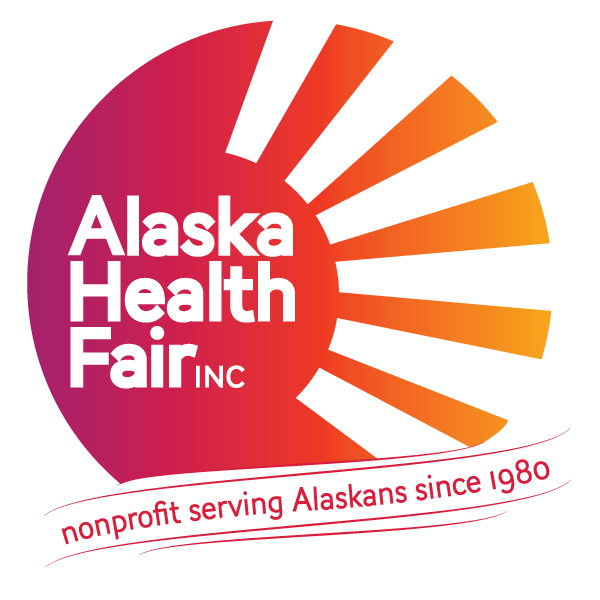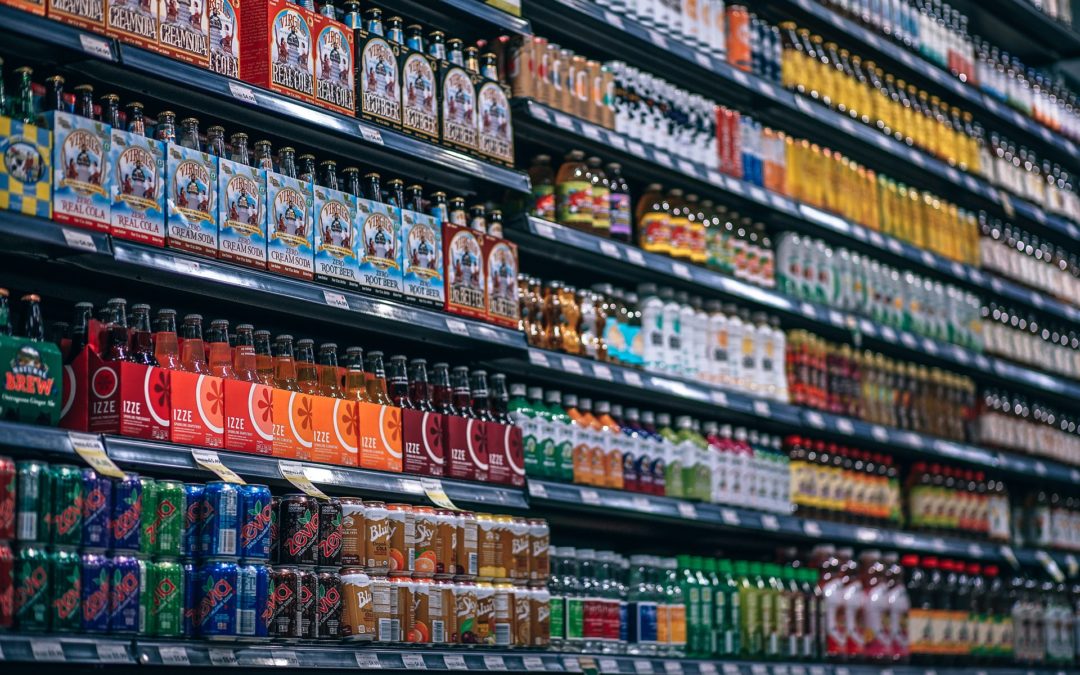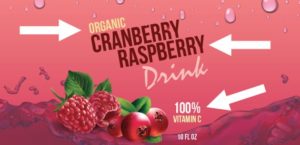It’s been a long week, and you’ve made it to the store to buy groceries for your family. You’ve got a toddler in the cart and a grocery list in your hand.
You’re looking for convenient, healthy drinks for your little kids. You’re in the drink aisle and spot a bottle that says “Cranberry Raspberry Drink.” The front of the label also says “Organic” and “100% Vitamin C.” Plus the bottle size is small enough to fit into your preschooler’s backpack or lunchbox.
Before you add that drink to the cart, turn that bottle, pouch, box or can around. The back of the label will tell you the truth about what’s actually in that drink.
Many drinks in the grocery store appear healthier than they are, based on the words and pictures shown on the labels. But many of these drinks aren’t the best options for your toddlers, preschoolers or older children. The healthiest drinks for them — and your whole family — are water or milk.
“Ounce for ounce, fruit drinks can be hiding just as much added sugar as soda,” said Karol Fink, registered dietitian and manager for Alaska’s Physical Activity and Nutrition program. “Serving these sugary drinks to your kids from a very young age can increase their chances for developing type 2 diabetes and heart disease years from now. Serving healthy drinks like water or milk now, plus daily physical activity, can prevent these serious diseases that last a lifetime.”
National recommendations give limits for daily sugar
A drink can have a fruit in its name and NOT be made with any fruit juice. Some fruit drinks have a small amount of fruit juice, but they’re still filled with a large amount of added sugar. If sugar or any other sweetener is listed in the first three ingredients, your drink is likely loaded with sugar.
For the best health, the U.S. Dietary Guidelines for Americans recommend limiting the amount of sugar your kids eat and drink to less than 10 percent of their daily calories. For preschool-age children, that means limiting added sugar to fewer than 8 teaspoons a day. Small drinks like fruit drinks can be packed with that much sugar, even more.
Play Every Day is sharing new videos to help show the large amount of sugar in fruit drinks, and to give examples of how labels on these drinks can be confusing to families looking for healthy options. Its Fruit Drink PSA focuses on those labels and explains how the added sugar in small fruit drinks can add up to serious health problems over time. Another 30-second video shows that these small fruit drinks can have the same amount of sugar as 8 mini doughnuts. Serving water or milk instead can cut out a lot of added sugar each day.
Look out for other sugary drinks, too
Other drinks also contain a lot of added sugar. A label on a vitamin drink may say it’s loaded with vitamins, but it’s also loaded with sugar. A drink can contain 100% vitamin C and still have added sugar along with the added vitamins. As an example, a 20-ounce bottle of a vitamin drink can have 8 teaspoons of added sugar.
Sports drinks are sold as beverages to rehydrate you after physical activity, but water is all that kids (and adults) need after they get out and play. A 20-ounce sports drink can have 9 teaspoons of added sugar. Water has none. And what about that orange powdered mix that looks like it could be served with breakfast? Mixing up a powdered drink for your child is like stirring sugar into water. An 8-ounce glass of a powdered mix can have almost 6 teaspoons of added sugar.
Organic drinks may sound healthy, but that’s not always the case. Organic drinks often have the same amount of sugar as non-organic drinks. Both organic and non-organic drinks with added sugar can lead to health problems in little children.
Learn more about serving healthy drinks to your family
You may have young kids at home, take care of them in a pediatric or dental clinic, or tend to them in child care centers or preschools. Alaska’s Play Every Day campaign has educational materials to help learn more about the large amounts of sugar hiding in many drinks, the health harms related to that added sugar, and ways to make it easier to serve healthier drinks at home, at school and on the go. All of these materials are free and available to download online. Looking for print copies? Please contact playeveryday@alaska.gov to request materials related to physical activity, sugary drinks or healthy drinks.
- New educational handout focused on sugary drinks and healthy drinks (available for free downloading)
- New webpage promoting healthy drinks for preschool-age children
- New webpage promoting physical activity for preschool-age children
- Posters promoting healthy drinks — “Drink Water” and “Drink Milk” (available in print copies and for free downloading)
- Posters promoting physical activity — “Get out and play, every day” (available in print copies and for free downloading)
Submitted by Alaska Department of Health and Social Services Play Every Day campaign to help Alaska children grow up at a healthy weight and encourage families to be physically active and choose healthy drinks. For more information, visit www.playeveryday.alaska.gov


